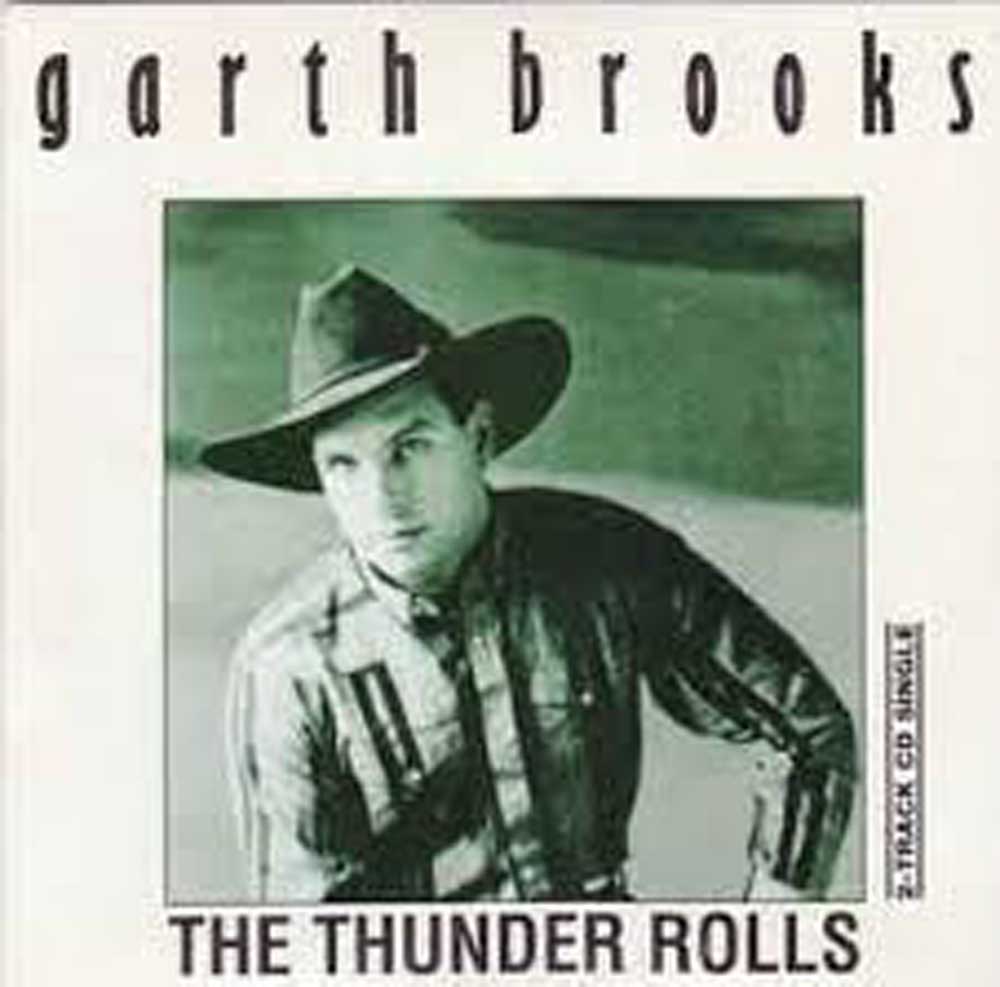GO! Magazine’s picks for ’90s mixtape
Published 1:00 pm Wednesday, January 6, 2021

- “Thunder Rolls,” Garth Brooks
It’s ’90s week at GO! Magazine, and as resident music person, I have been tapped to create the ultimate ’90s mixtape. No, this was not my idea (that would be resident movie, history and calendar person, Makenzie Whittle, who contributed a bunch of these songs, as did resident visual art and theater person David Jasper). I tend to shy away from “best of” lists like this, because why should anyone listen to me? Besides, I’d just stuff it full of Nirvana songs (as would resident features editor Jody Lawrence-Turner).
But we tried to be egalitarian. If your favorite ’90s song isn’t on this mixtape, go put it on there. I tried to hit most of the major musical movements and trends with at least one representative song, but I probably still ended up leaning on alternative rock. Again, just be glad I didn’t give you a list of 20 Nirvana songs.
Trending
“Aneurysm,” Nirvana
Well, I’m allowed one, aren’t I? “Aneurysm,” a b-side to the “Smells Like Teen Spirit” single that also showed up on the band’s 1992 odds-and-ends collection, “Incesticide,” may be Nirvana’s finest hour: a perfect mix of loud-quiet dynamics, punk-rock fury, metallic riffs and pop hooks (i.e. everything that made Nirvana, Nirvana).
“Torn,” Ednaswap
The song that launched Natalie Imbruglia’s career was a cover. Written by Ednaswap vocalist Anne Preven and guitarist Scott Cutler with English musician Phil Thornalley in 1993, “Torn” was first recorded by Danish musician Lis Sørensen. Ednaswap’s raw, grunge-tinged version appeared on its 1995 self-titled album (and then again on 1997’s “Wacko Magneto,” the version you can find on Spotify), and two years after that, Imbruglia turned the song into a pop sensation.
“Albuquerque,” “Weird Al” Yankovic
You can’t put together a ’90s mixtape (or any mixtape, I’d argue) without Weird Al. “Albuquerque,” from Yankovic’s 1999 album “Running with Scissors,” is an original song and the longest he has ever recorded. Over a grinding guitar riff, Yankovic delivers an appropriately weird story about being forced to eat sauerkraut, winning a one-way ticket to the titular city, trying to buy doughnuts and much more.
Trending
“Cannonball,” The Breeders
Pixies bassist Kim Deal stepped out from under Black Francis’ shadow with The Breeders. “Cannonball” was the band’s breakout hit from the group’s 1993 sophomore album “Last Splash,” and introduced the mainstream music world to Deal’s quirky, hook-filled songwriting.
“Fight the Power,” Public Enemy
While this powerful protest single was released in 1989, a different version appeared on 1990’s “Fear of a Black Planet.” Public Enemy is one of hip-hop’s most thought-provoking entities, and Chuck D is in fine form on this track, which remains painfully relevant today (especially in the wake of ongoing Black Lives Matter protests against police brutality nationwide).
“Everlong,” Foo Fighters
Dave Grohl’s second entry on this mixtape is one of his best songs. Employing the loud-quiet-loud dynamics Nirvana became famous for, “Everlong” soars with emotion and sonic intensity. It’s an earnest love song from a perhaps unexpected source.
“Everybody (Backstreet’s Back),” Backstreet Boys
A ’90s playlist must acknowledge the decade’s boy-band craze. The Backstreet Boys may not have been the first, and they ultimately may not have been the most popular. But for a time in the late ’90s, the highly danceable “Everybody (Backstreet’s Back)” was inescapable.
“Criminal,” Fiona Apple
Fiona Apple was one of the best, smartest and weirdest artists to come out of the ’90s crop of women singer-songwriters.
Her jazzy, arty sensibilities are on full display on her breakout hit, “Criminal,” a deceptively catchy and ominous piano dirge that subtly grapples with sexuality-as-a-weapon.
“…Baby One More Time,” Britney Spears
Similarly to boy bands, women pop singers experienced a golden age in the late ’90s, and Britney Spears led the pack. “…Baby One More Time” and its massive earworm chorus sounded familiar yet fresh when it first dropped on Spears’ 1998 album of the same name, and still holds up today.
“Doo Wop (That Thing),” Lauryn Hill
Elusive and influential rapper Lauryn Hill got her start in The Fugees, but sealed her impressive legacy with her debut (and to date, only) solo album, 1998’s “The Miseducation of Lauryn Hill.” “Doo Wop (That Thing),” the album’s first single, takes a hard look at relationships, with Hill demonstrating her considerable vocal chops over a neo-soul backdrop.
“Loser,” Beck
The poster child for ’90s genre-mashing, Beck offered the first glimpse into his mixed-up musical world with his 1994 breakout single “Loser,” from the album “Mellow Gold.” Almost every avenue Beck would later explore surfaces on this track: nonsequitur lyrics (here disguised as very ’90s self-loathing), folk melodies and danceable hip-hop beats.
“Losing My Religion,” R.E.M.
R.E.M. has created more iconic songs than any band has a right to, and “Losing My Religion,” from 1991’s “Out of Time” album, might be its most iconic. It’s the catchiest hit single that doesn’t have a single verse, chorus, break or bridge, just one stream-of-consciousness rant over a cycling mandolin figure.
“Thunder Rolls,” Garth Brooks
Garth Brooks may be the name most associated with country music’s pop takeover in the ’90s. “Thunder Rolls,” from his second album, 1990’s “No Fences,” makes a great case as to why that is. The song, first recorded by Tanya Tucker, starts with ominous thunder before launching into an equally ominous guitar figure that points to Southern rock as much as Nashville twang, while the chorus is pure pop.
“Man! I Feel Like a Woman!” Shania Twain
Garth Brooks brought country music into the ’90s pop mainstream, and Shania Twain helped keep it there with “Man, I Feel Like a Woman.” The single, released in 1999 and taken from Twain’s third album, 1997’s “Come on Over,” was inescapable for the rest of the decade thanks to its full-throated celebration of womanhood, delivered over huge hooks and guitar riffs.
“Freak on a Leash,” Korn
Nu-metal (or rap-rock, or whatever you want to call it) dominated heavy music in the tail end of the ’90s, combining streetwise hip-hop grooves and swagger with sludgy, downtuned guitar riffs. Korn pioneered this musical mix, and in 1998 crossed over into the mainstream with its album “Follow the Leader” and the single “Freak on a Leash.”
“O.P.P.,” Naughty By Nature
Naughty By Nature’s breakout hit, from the trio’s 1991, self-titled second album, celebrates other people’s … er, personal effects with subversive, sexually progressive lyrics. The chorus chant (you know the one, unless you’re not down with O.P.P. I guess) is still one of the catchiest hooks to ever hit airwaves.
“Longview,” Green Day
Punk and ska also hit the mainstream in the early-to-mid ’90s (don’t call it a revival, the music never stopped post-Sex Pistols). Green Day was one of the biggest new punk bands to hit the scene post-Nirvana, and “Longview” is quintessential ’90s: A bored kid singing about how even his favorite, ahem, hobby won’t alleviate the boredom.
“1979,” Smashing Pumpkins
Combining goth sensibilities with hard rock riffs and pop hooks, The Smashing Pumpkins were one of the more esoteric alternative rock bands of the ’90s. “1979,” from the band’s sprawling, 1995 double-album “Mellon Collie and the Infinite Sadness,” smooths out some of the band’s raw edges, and is one of frontman Billy Corgan’s most personal statements.
“No Scrubs,” TLC
Another inescapable song at the tail end of the ’90s, “No Scrubs” appeared on hip-hop/R&B trio TLC’s third studio album, “FanMail.” The song is a scathing critique of the titular “scrubs” (in case you didn’t know, those are guys that can’t get no love from TLC), and its rising chorus melody was a clear inspiration for many of the R&B and neo-soul hits to follow.
“Keep Ya Head Up,” 2Pac
Tupac “2Pac” Shakur would revolutionize hip-hop over the course of just four studio albums in his lifetime, and “Keep Ya Head Up” is a great example of what set the rapper apart from his contemporaries. The 1993 song condemns violence against women, specifically the abuse suffered by Black women, with a sensitivity not often found in the genre.
Honorable mentions:
“Foolish Games,” Jewel
“The Unforgiven,” Metallica
“21st Century (Digital Boy),” Bad Religion
“Rooster,” Alice in Chains
“Drunken Butterfly,” Sonic Youth
“Self Esteem,” The Offspring
“Soul and Fire,” Sebadoh
“Bulls on Parade,” Rage Against the Machine
“Let Her Cry,” Hootie and the Blowfish
“Going Back to Cali,” The Notorious B.I.G.
“Fell on Black Days,” Soundgarden
“Insane in the Brain,” Cypress Hill
“Sabotage,” Beastie Boys
“You Oughta Know,” Alanis Morissette
“Foolish Games,” Jewel
“A Shot in the Arm,” Wilco
“Come to My Window,” Melissa Etheridge
“Say it Ain’t So,” Weezer
“When I Come Around,” Green Day
“Feel the Pain,” Dinosaur Jr.
“You Get What You Give,” New Radicals
“Linger,” The Cranberries
“Macarena,” Los Del Rio
“Gettin’ Jiggy Wit It,” Will Smith
“Smooth,” Santana feat. Rob Thomas
“Truly Madly Deeply,” Savage Garden
“The Boy is Mine,” Monica and Brandy
“Bittersweet Symphony,” The Verve
“Wonderwall,” Oasis
“Don’t Speak,” No Doubt
“Two Princes,” Spin Doctors
“Shoop,” Salt-N-Pepa
“Tearin’ Up My Heart,” *NSYNC
“No Diggity,” Blackstreet
“Semi-Charmed Life,” Third Eye Blind
“Smells Like Teen Spirit,” Nirvana
“Strawberry Wine,” Deana Carter
“Fancy,” Reba McEntire
“Boot Scootin’ Boogie,” Brooks & Dunn
“Wide Open Spaces,” The Chicks
“Web in Front,” Archers of Loaf
“Flagpole Sitta,” Harvey Danger
“Divine Hammer,” The Breeders
“I Try,” Macy Gray
“American Music,” Violent Femmes
“Laid,” James
“Radiation Vibe,” Fountains of Wayne
“Friends of P,” The Rentals
“Cut Your Hair,” Pavement
“Girl from Mars,” Ash
“The Impression That I Get,” Mighty Mighty Bosstones
“Bound for the Floor,” Local H
“If it Makes You Happy,” Sheryl Crow








